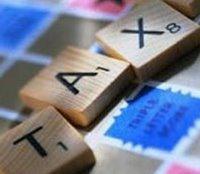 The government plans to implement the direct taxes code from 2011-12 after addressing all concerns relating to controversial proposals like taxation of retirement benefits, weeding out incentives for housing sector and changes in the minimum alternate tax.
The government plans to implement the direct taxes code from 2011-12 after addressing all concerns relating to controversial proposals like taxation of retirement benefits, weeding out incentives for housing sector and changes in the minimum alternate tax.
The proposals in the code are only 'illustrative' and are open for discussion and there is no need to think that these 'have been decided,' finance minister Pranab Mukherjee told PTI.
Giving the roadmap for the code that will replace the Income Tax Act of 1961, he said, "It will be implemented from 2011. So, the finance bill of 2011-12 would be appropriate."
The government, Mukherjee said, has identified seven critical areas of concern in the Code and would take suggestions on board before finalising it.
The critical areas of concern include shifting the base for computation of minimum alternate tax from book profits to assets; capital gains taxation in case of non-residents; double tax avoidance agreements; general anti-avoidance rules; taxation of foreign companies; taxation of charitable institutions; and shift to EET system for taxation of savings.
On the issues relating to taxation of savings at the time of withdrawal, the minister said, "Whether it will be EET (exempt, exempt, tax) or ETE (exempt, tax, exempt) . . . is to be finally arrived at a decision. So one need not rush to the conclusion that it has been decided. That is the short point that I would like to make it clear."
DTC has proposed that all savings schemes should be taxed at the time of withdrawal. Under the current dispensation, the savings schemes like public provident fund and general provident fund are not taxed at all, while in some schemes like national savings certificate only interest accruals are taxed.
The code is also silent on tax incentives for housing sector as against the current practice of provide rebate on repayment of interest and principal on home loans.
As regards the MAT, the code proposes to levy minimum tax on assets instead of book profits. The proposal evoked sharp reaction from the industry which described the move as introducing wealth tax on enterprises.
Referring to his interaction with the representatives of the industry on the code at Delhi and Bangalore, Mukherjee said, "I told them to express (their) views candidly . . . final decision will be taken after obtaining inputs from various stake holders and in depth discussions."
The direct tax reforms are basically aimed at doing away with the 'plethora of exemptions', Mukherjee said, adding, "if somebody analysis the Act of 1961, as amended from time to time now (will) realise that the original character of the Act is lost through a series of amendments.
"All 22 alphabets are lost, than 1,2,3,4 are also put while amending the Act. It is substantially because of plethora of exemptions. So attempts have been made to make, to simplify it and in that process some critical areas and vital areas may (have been) left out," he added.